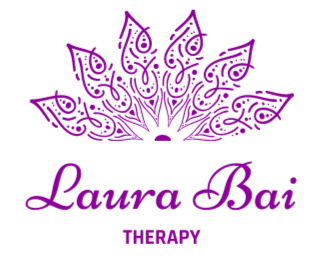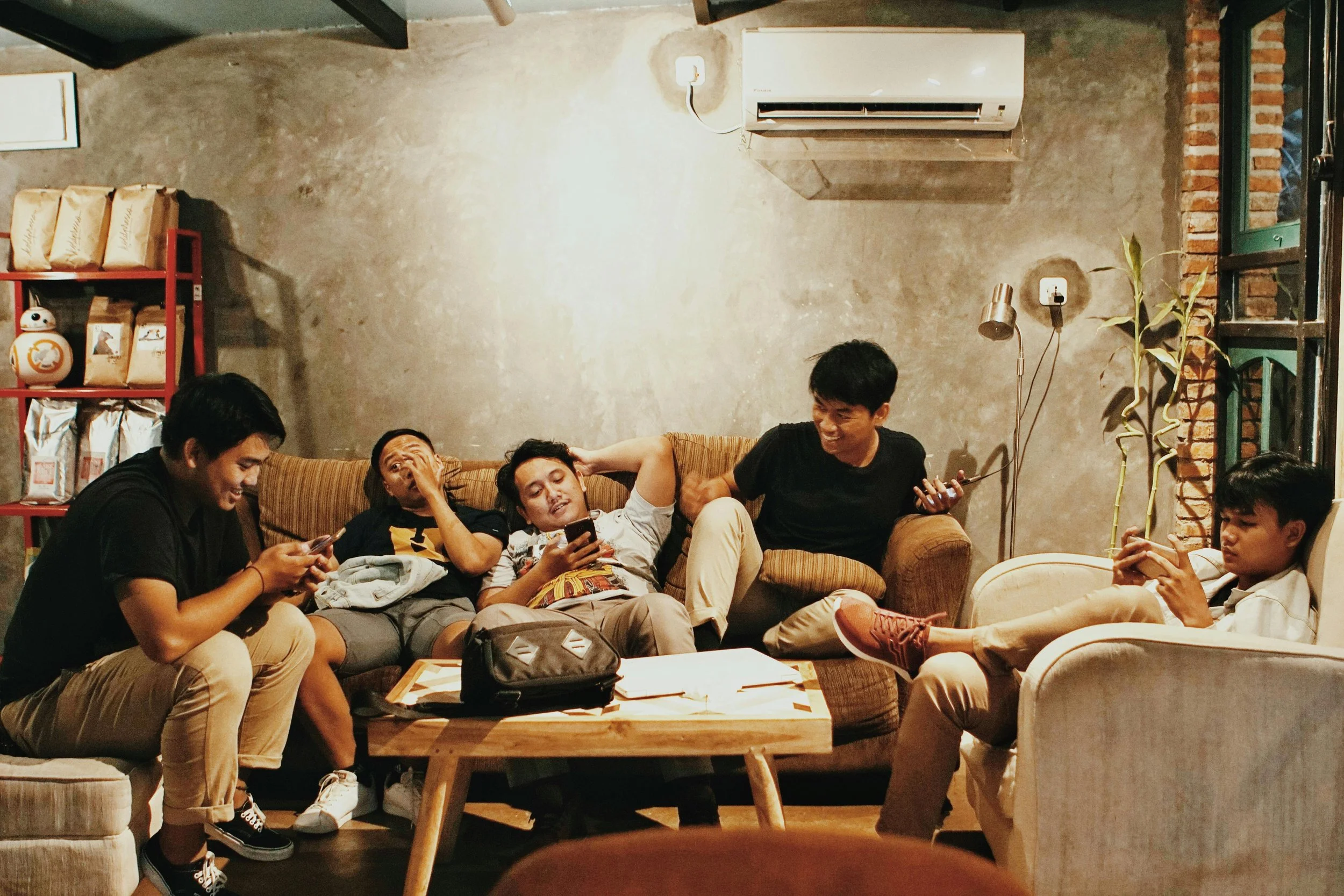
Therapy for Relationship Conflicts
For Asian-Americans in Oakland
Are you struggling with cycles of conflict in your relationships that happen over and over no matter how much you try to communicate? Do these conflicts bring up the same emotions you felt in your family of origin? As an Asian-American therapist who understands the weight of intergenerational patterns, I recognize how challenging it can be to resolve conflicts when you never had models for open, healthy communication.
I offer therapy for relationship conflicts in Oakland and online throughout California, serving Asian-American individuals, couples, and families who are seeking to build healthier relationships. Whether you're longing to feel seen, struggling with resentment from constant caretaking, dealing with guilt around setting boundaries, or feeling that you're never enough for your partner, I provide specialized care that addresses the deeper root causes of conflict in your relationship and facilitates lasting positive changes.
Understanding Relationship Conflicts in the Context of Intergenerational Trauma
Whether it was intense fighting or sweeping things under the rug, your family struggled to have difficult conversations. You learned to always be alert for signs of conflict (hypervigilance), to withdraw, or to fight back - but conflicts were never truly resolved. There may be periods of relative peace, but underlying patterns of caretaking, criticism, and emotional disconnection always erupt into recurring conflicts.
The conflicts in your relationship connect to much deeper struggles: the weight of being the caretaker in your family, the pressure to maintain harmony at all costs, or the challenge of expressing needs when you've learned that you shouldn’t burden others with your problems.
Relationship conflicts aren't just about the immediate disagreement. They're often rooted in the invisible burdens you carry—the tendency to prioritize your partner at the expense of your needs, the responsibility you feel for your family's happiness, or the identity navigation when your partner doesn't share your cultural background.
Hidden Patterns in Asian-American Relationships
The Achievement Trap: When excellence becomes your identity, it can feel terrifying to be imperfect in your relationship. Many clients describe avoiding conflict discussions entirely because admitting problems feels like admitting failure. This pattern often leads to the same fight resurfacing repeatedly because the underlying emotions—fear of disappointment, shame around needing help—remain unaddressed.
Money is More Than Money: Financial stress in Asian-American relationships often carries the weight of intergenerational dreams and sacrifices. Arguments about spending can actually be about honoring your parents' struggles, fear of not living up to the opportunities they created, or guilt around having choices they never had.
The Caretaker's Burden: Growing up with the message that your job is to make others happy can create exhausting relationship patterns. You might find yourself losing your voice, feeling resentful but unable to express it, or struggling with the guilt that comes when you prioritize your own needs.

My Approach: Meeting You Where You Are
I utilize several therapeutic approaches specifically chosen because they honor the complexity of your experience while helping you develop practical skills for regulating emotions and improving communication:
Emotionally Focused Therapy: Understanding What's Really Happening
Emotionally Focused Therapy helps us explore the attachment needs underneath your emotions and patterns of conflict. When you shut down during arguments, there's usually a good reason—perhaps silence feels safer than risking the disapproval you learned to fear as a child. When your partner pushes for more connection, we explore what that really means for both of you, considering how your different backgrounds shape what intimacy looks like.
Somatic Therapy: Reconnecting with Your Body's Wisdom
Many Asian-American clients have learned to disconnect from their emotions as a survival strategy. Somatic therapy helps you rebuild that connection, learning to recognize when your chest tightens before you shut down, or when your shoulders carry the stress of unspoken words. These practices help you develop better strategies for regulating emotions during heated moments.
Attachment-Focused EMDR: Healing Old Wounds
Sometimes the intensity of current conflicts connects to earlier experiences—moments when you felt unseen, unheard, or like your needs didn't matter. Attachment-Focused EMDR helps us process these memories so they have less power over your present relationships. This work can be particularly powerful when dealing with unresolved conflict from childhood or the complex grief that comes from loving parents whose care sometimes felt conditional.
Parts Work: Honoring All of Who You Are
You might notice different parts of yourself showing up in conflicts—the part that wants to keep peace at any cost, the part that's tired of being misunderstood, the part that feeling angry and resentful for doing everything. Instead of seeing these as contradictory, we work to understand how all parts of you have an important role and deserve compassion. This approach helps address the guilt and shame that often arise when your needs conflict with what you think you "should" want.
What You Can Expect from Our Work Together
Developing Your Authentic Communication Style
You'll learn to express yourself in ways that feel genuine while still honoring values of respect and harmony. This isn't about becoming more "Western" in your communication—it's about finding your voice within your own cultural framework. We'll practice active listening techniques that honor different communication styles while promoting deeper understanding.
Learning to Navigate Conflicts with Grace
Conflict doesn't have to mean chaos or cut-off. Together, we'll develop key strategies for approaching disagreements from curiosity rather than fear, establish ground rules that feel safe for both partners, and learn when to take a break and how to return to difficult conversations with renewed perspective.
Building Emotional Intelligence and Connection
You'll develop skills for understanding your underlying emotions and those of your partner, learning to see beyond surface-level frustrations to the deeper needs and fears. We'll practice regulating emotions during challenging moments while maintaining the emotional intimacy that makes relationships meaningful.
Integrating Your Cultural Identity with Your Individual Needs
Rather than choosing between honoring your heritage and meeting your own needs, you'll learn to hold both. Your cultural background can become a source of wisdom and strength in your partnership, while also making space for your individual growth and authentic expression.

How I Support Different Relationship Configurations
Individual Therapy for Relationship Conflicts
Sometimes working on your personal healing creates space for different dynamics to emerge in your relationships with your partner and family members. Individual work can be particularly helpful when you're struggling with patterns that feel bigger than your current relationship—like perfectionism, guilt around boundaries, or the exhaustion that comes from constant caretaking.
Couples Therapy for Communication Challenges
Whether you and your partner come from similar cultural backgrounds or you're navigating the complexity of an inter-cultural partnership, I help couples understand each other's emotional needs and develop open communication strategies that honor both perspectives.
Family Therapy for Intergenerational Dynamics
When conflict feels entrenched in your family dynamics and spans generations, family therapy can help address these patterns directly. I support all members of the family to explore how to balance respect for others with individual needs and priorities, to listen with empathy while regulating emotions, and to see and accept differences while maintaining authentic connections.
The Process: Building Understanding and Sustainable Change
Initial Consultation and Assessment
I begin with a free 20-minute consultation where we can talk about what's bringing you to therapy and whether my approach feels like it might be helpful. This conversation gives you space to share what you're experiencing and ask any questions about how I work.
Understanding Your Relationships
In our first full session, we'll explore relationship patterns, family background, and goals for change. I want to understand not just what's happening now, but how your experiences growing up, your family's immigration story, and your own identity journey all influence your current relationships.
Developing Your Personal Approach
Every person, couple, and family is unique, so I tailor our work based on what you and your partner and/or family members need most. Some need more focus on communication skills, others on regulating emotions, and still others on understanding how perfectionism or caretaking patterns developed and how to shift them.
Building Skills for the Long Term
Therapy sessions happen consistently, usually weekly or bi-weekly, providing regular support to practice new ways of being in relationships. Between sessions, we might have exercises or reflections that help reinforce new, healthier patterns, always at a pace that feels manageable.
The Struggles I Help People Navigate
My approach to therapy for relationship conflicts addresses the patterns that many Asian-American individuals, couples, and families face:
Communication breakdowns when one member shuts down and the other pursues, often rooted in different comfort levels with conflict
Anxiety and depression affecting how you show up in relationships, particularly when tied to achievement pressure or identity struggles
Perfectionism creating impossible standards for yourself and your relationships
Guilt and shame around having needs, setting boundaries, or disappointing others
Burnout from trying to excel in every area while managing family and cultural expectations
Caretaking patterns that leave you exhausted and others feeling shut out
Disconnection when you've learned to suppress emotions for so long that you've lost touch with what you actually feel
Family pressure that creates tension or makes it hard to prioritize your relationship

Taking the Next Step
If you're tired of having the same conflicts without resolution and ready to build a healthy relationship that honors your identity and needs, I'm here to support you in this journey.
The work we do together can help you move beyond the patterns that aren't serving you while strengthening what you value most about your relationships. You don't have to repeat the same patterns of conflict that keep you feeling trapped - you can build authentic, fulfilling partnerships.
I invite you to reach out for a free 20-minute consultation where we can discuss what you're experiencing and explore whether working together feels like a good fit. These conversations provide an opportunity to see if my approach to therapy for relationship conflicts resonates with what you're seeking.
Contact me today to schedule your consultation and take the first step toward building the relationships you truly want.
Supporting Asian-American individuals, couples, and families in Oakland and more broadly throughout California with relationship conflicts that helps you develop the communication skills and emotional connection you deserve.








